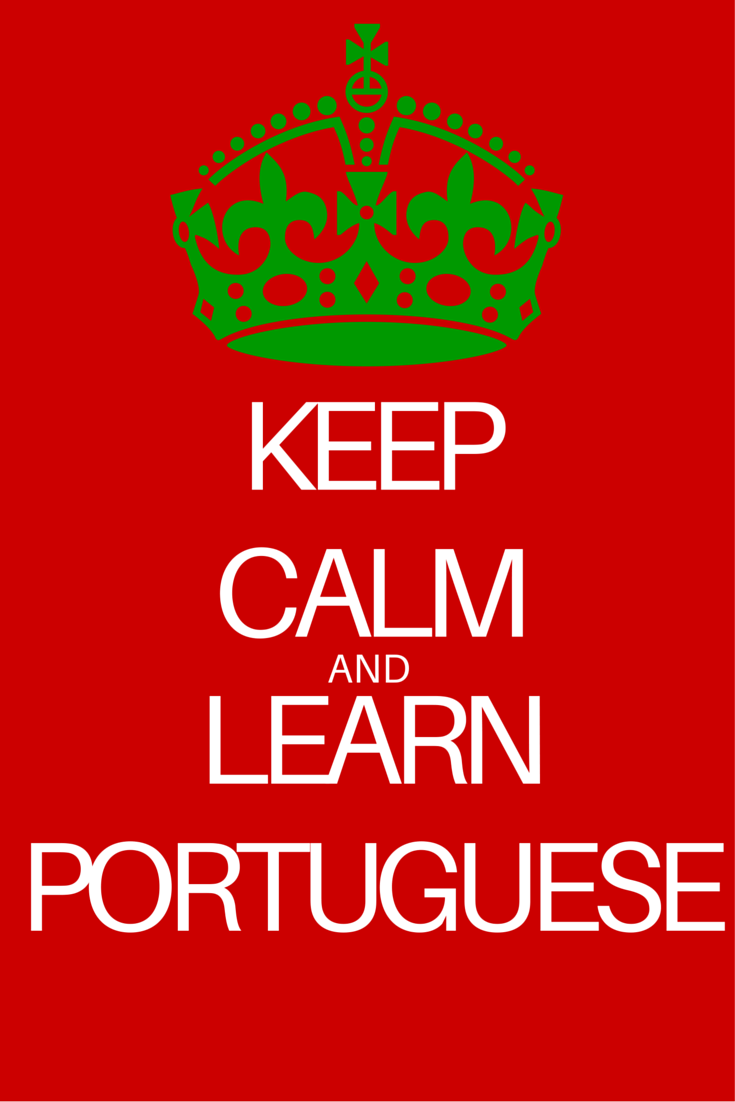 Is Portuguese a hard language to learn? If you are asking yourself the question, it means that you already have the hardest part behind you. The key when it comes to learn new languages is not in the language itself but in the learner’s motivation and self-confidence. Indeed, if you start learning Portuguese thinking that you are bad at languages and that you are never going to make it, don’t even start. But keep in mind that it is scientifically proved that everyone can reach a minimum level in a foreign language. Some people learn faster, but it doesn’t mean that it is impossible for the slower ones.
Is Portuguese a hard language to learn? If you are asking yourself the question, it means that you already have the hardest part behind you. The key when it comes to learn new languages is not in the language itself but in the learner’s motivation and self-confidence. Indeed, if you start learning Portuguese thinking that you are bad at languages and that you are never going to make it, don’t even start. But keep in mind that it is scientifically proved that everyone can reach a minimum level in a foreign language. Some people learn faster, but it doesn’t mean that it is impossible for the slower ones.
Having said that, some languages are easier to learn than others. According to an article published in the economist (https://www.economist.com/blogs/economist-explains/2013/08/economist-explains-19), the difficulty of learning can be ranked in categories of languages. For example, Spanish is considered category 1, which means that it is supposed to be an easy language to learn, as opposed to Korean, which is in category 3. Portuguese is also in category 1, which should raise your hopes up a little bit. Another approach classifies languages by degree of “weirdness” (https://idibon.com/the-weirdest-languages/). It consists in studying the different patterns that can be found in different languages and comparing how many other languages present this pattern. Portuguese is ranked pretty low in that list as well, which means that it only presents a few “weird” characteristics. Isn't this good news?
Now, of course, you will find it more or less easy to learn Portuguese according to your mother tongue or to the other languages that you might speak. If you speak another Latin language for instance, you will learn much faster. French, Italian, Spanish and to a certain extend even Romanian speakers will recognize many basic words in Portuguese like vento (fr: vent, it: vento, sp: viento, ro: vânt) which means “wind”. This example shows well how similar those languages are. They also share a lot of grammatical patterns like the word order, the use of articles, the gender differentiation, the tenses and the conjugation. Due to the important French influence in Great Britain in the beginning of the 11th century, English speakers might also be able to recognise a big part of the Portuguese vocabulary and find similarities in the use of tenses. Chinese speakers, on the other hand, might only perceive international words like “Facebook” or “information”.
However, learning a new language is not only about guessing and recognizing. At some point you also have to talk and understand what is being said to you. And this is where Portuguese becomes a little bit tricky. The Portuguese pronunciation makes it very hard to distinguish the different syllables of a word, they have this bad habit of swallowing vowels. Many people think that the verb “to ask” in Portuguese is like the Spanish preguntar, because it sounds the same, but you write it perguntar in Portuguese. The “e” is just very hard to spot. Vowels in general are closed and kept inside of the mouth, so much that it is not uncommon to hear people say that Portuguese sounds like a slavic language.
This is the reason why you will probably hear that Brazilian Portuguese is easier to learn: the vowels are more open and Brazilian people have a more melodic way of talking. It is however better to start learning European Portuguese first, as it paves the way to the other variants. You go from closed to open, rather than from open to closed.
The Portuguese language also has its own particularities, like the infinitivo pessoal, which is a tense unique to Portuguese. It is used to define to which subject an infinitive actually refers to in cases like “This pen is for you to draw with”. Esta caneta é para tu pintares. A suffix is added to the infinitive pintar, to make it clear that although the action is not being processed at the moment of speaking, it is owned by tu.
To conclude, Portuguese is not considered a difficult language to learn. It has its own particularities, but nothing Portuguese babies couldn’t overcome. It all depends on your personal motivation: If you want to learn, you will learn, and Portuguese Connection will help you!


